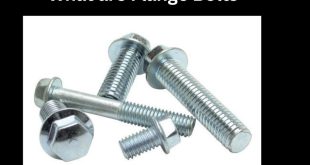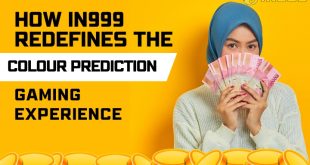Millions of people, both adults and children, suffer with attention-deficit/hyperactivity disorder ADHD. Although Ritalin and Adderall are frequently recommended stimulant drugs for ADHD, there are other options as well. For people who could have stimulant side effects, have other medical concerns, or just prefer a different method, non-stimulant ADHD drugs provide an alternative. The kinds of non-stimulant ADHD drugs that are available, their mechanisms of action, possible advantages and disadvantages, and how to decide if they’re the best option for you or your child are all covered in this article.
Why Take a Look at Non-Stimulant ADHD Drugs?
Since stimulant drugs are typically successful in controlling symptoms including impulsivity, hyperactivity, and inattention, they are the most often recommended drugs for ADHD medication. But not everyone is a good fit for them. Non-stimulant ADHD drugs may be worthwhile for the following reasons:
Stimulant sensitivity:
Some people have adverse reactions to stimulants, such as difficulty sleeping, decreased appetite, anxiety, or elevated heart rate. Non-stimulant alternatives might be a better choice for people who struggle with these adverse effects.
Medical Conditions:
Stimulants might not be advised for people with specific medical concerns, such as heart problems or a history of substance abuse. It might be safer to use non-stimulant drugs instead.
Preference for an Approach Without Stimulants:
Some people would rather stay away from stimulants because of lifestyle choices, personal preferences, or worries about possible abuse.
Longer Duration of Action:
Some non-stimulant drugs offer symptom relief that lasts for 24 hours, in contrast to stimulants that may wear off in the afternoon. Those who require steady coverage without the highs and lows of shorter-acting stimulants could find this useful.
Different Non-Stimulant ADHD Drug Types
Non-stimulant pharmaceuticals are not a single class; rather, they are a variety of compounds with distinct mechanisms of action. The main non-stimulant choices are as follows:
Strattera (atomoxetine):
By raising norepinephrine levels in the brain, atomoxetine, a selective norepinephrine reuptake inhibitor (NRI), can assist enhance focus and decrease impulsivity. It is the first non-stimulant drug that the FDA has approved, especially for ADHD. Unlike stimulants, atomoxetine does not have the potential for misuse and usually takes a few weeks to start producing notable effects.
Guanfacine and clonidine, two alpha-2 adrenergic agonists:
Guanfacine (Intuniv) and clonidine (Kapvay), which were first recommended to treat high blood pressure, are occasionally used to treat ADHD, particularly in youngsters who have trouble controlling their emotions and impulsivity. They function by reducing hyperactivity and enhancing focus by calming the sympathetic nervous system. Although they can be taken on their own, these drugs are frequently used in conjunction with stimulant therapy.
Wellbutrin (bupropion):
Bupropion is primarily used as an antidepressant, but it is occasionally prescribed off-label for ADHD. including stimulants, it affects dopamine and norepinephrine, although it has a decreased chance of adverse effects including appetite loss or insomnia. Bupropion, however, might not be as useful as stimulant drugs in treating hyperactivity.
TCAs, or tricyclic antidepressants:
Although imipramine and nortriptyline, two TCAs, have been used to treat ADHD, their use is now less widespread due to possible side effects. Because these drugs affect both norepinephrine and serotonin, they may be useful for people who have both depression and ADHD.
The advantages, possible drawbacks, and modes of action of each of these drugs vary. A healthcare professional should help choose a non-stimulant drug by taking into account the patient’s symptoms, medical history, and reaction to prior therapies.
Advantages of Non-Stimulant ADHD Drugs
Non-stimulant ADHD drugs have a number of special advantages that make them a desirable choice for some people. Among the principal benefits are:
Reduced Abuse Potential:
Non-stimulants are typically not seen as addictive, in contrast to stimulant drugs. They are therefore a safer choice for people who have a history of substance abuse problems or who are worried about becoming dependent.
Constant Management of Symptoms:
Numerous non-stimulants, including atomoxetine, offer 24/7 symptom management, which can facilitate bedtime, evenings, and morning routines. For kids or adults who require all-day coverage without the peaks and troughs that come with stimulants, this continuous impact can be especially helpful.
Reduced Severity of Adverse Reactions:
Non-stimulant drugs may have a distinct profile of side effects than stimulants, though they are still possible. For instance, they are less likely to result in increased anxiety, appetite loss, or sleep issues. They are therefore a good substitute for those who are unable to handle the negative effects of stimulants.
Beneficial for Combination Treatment: Combining stimulant and non-stimulant drugs helps some adults and children. For example, a non-stimulant such as guanfacine can be used in the evening to help with anxiety or impulsivity, while a stimulant can be used throughout the day for instant symptom relief. More individualized treatment regimens are made possible by this flexibility.
Possible Negative Effects of Non-Stimulant ADHD Drugs
Non-stimulant drugs have disadvantages despite their advantages. Making an informed choice can be aided by being aware of these possible restrictions:
Slower Onset of Action:
Non-stimulant drugs can take weeks to fully take action, in contrast to stimulants, which frequently start working within hours. This delayed onset could be annoying for those who require instant symptom alleviation.
Possible Adverse Reactions:
The profiles of side effects are different for non-stimulants. For instance, guanfacine may result in drowsiness or low blood pressure, but atomoxetine may produce mood changes, stomach distress, or exhaustion. It’s crucial to talk to a doctor about these possible side effects to determine whether they could affect day-to-day functioning.
Efficacy Could Change:
In general, stimulants are better in lowering the main symptoms of ADHD, such as impulsivity and hyperactivity. Although non-stimulants have their uses, not everyone will find that they significantly reduce symptoms.
Price and Insurance Protection:
The cost of some non-stimulant ADHD drugs may be higher than that of their stimulant equivalents. Because insurance coverage can differ, it’s best to inquire about options and prices with your provider.
Do You Need to Take a Non-Stimulant ADHD Drug?
Selecting non-stimulant medication is a personal decision that requires careful consideration by a medical professional. When determining if non-stimulant ADHD medicine would be appropriate, keep the following things in mind:
Previous Stimulant Experiences:
Non-stimulants might be a worthwhile choice to consider if stimulant drugs have not produced the required level of symptom control or have resulted in problematic side effects.
Existence of Co-occurring problems:
Non-stimulants might be a safer option for people who have problems like anxiety, tic disorders, or high blood pressure. People with tics or mood swings, for example, may benefit from alpha-2 agonists.
Lifestyle Preferences:
People who would rather avoid the peaks and troughs that certain stimulants might produce may find that non-stimulants offer a more consistent degree of symptom control throughout the day.
Support and Monitoring Availability:
To keep an eye on side effects and efficacy, non-stimulants need to be monitored with frequent follow-up sessions. To guarantee the greatest result, it is essential to have a helpful healthcare professional that is knowledgeable about ADHD and non-stimulant drugs.
Moving Forward
The first step is to speak with a physician who specializes in treating ADHD if you or your child is thinking about taking non-stimulant ADHD medication. It’s critical to have candid discussions about the intensity of symptoms, lifestyle requirements, and medication-related worries. A medical professional may assist in outlining the advantages and possible drawbacks of each choice and can also help you navigate the transitional phase while your body adjusts to the new drug.
Concluding remarks
ADHD symptoms can be effectively managed with non-stimulant drugs, particularly for people who might not tolerate or benefit from stimulants. These drugs provide a more consistent effect throughout the day, less potential for abuse, and efficient symptom treatment, however they might not be the first-line option for everyone. Non-stimulant drugs can enhance focus, impulse control, and quality of life for people with ADHD if used carefully and under strict medical supervision. A tailored approach is essential, as with any treatment, since each person will have different needs.
 Daily Blogger News Stay updated with the latest trends and insights. Your reliable source for daily updates and information.
Daily Blogger News Stay updated with the latest trends and insights. Your reliable source for daily updates and information.







